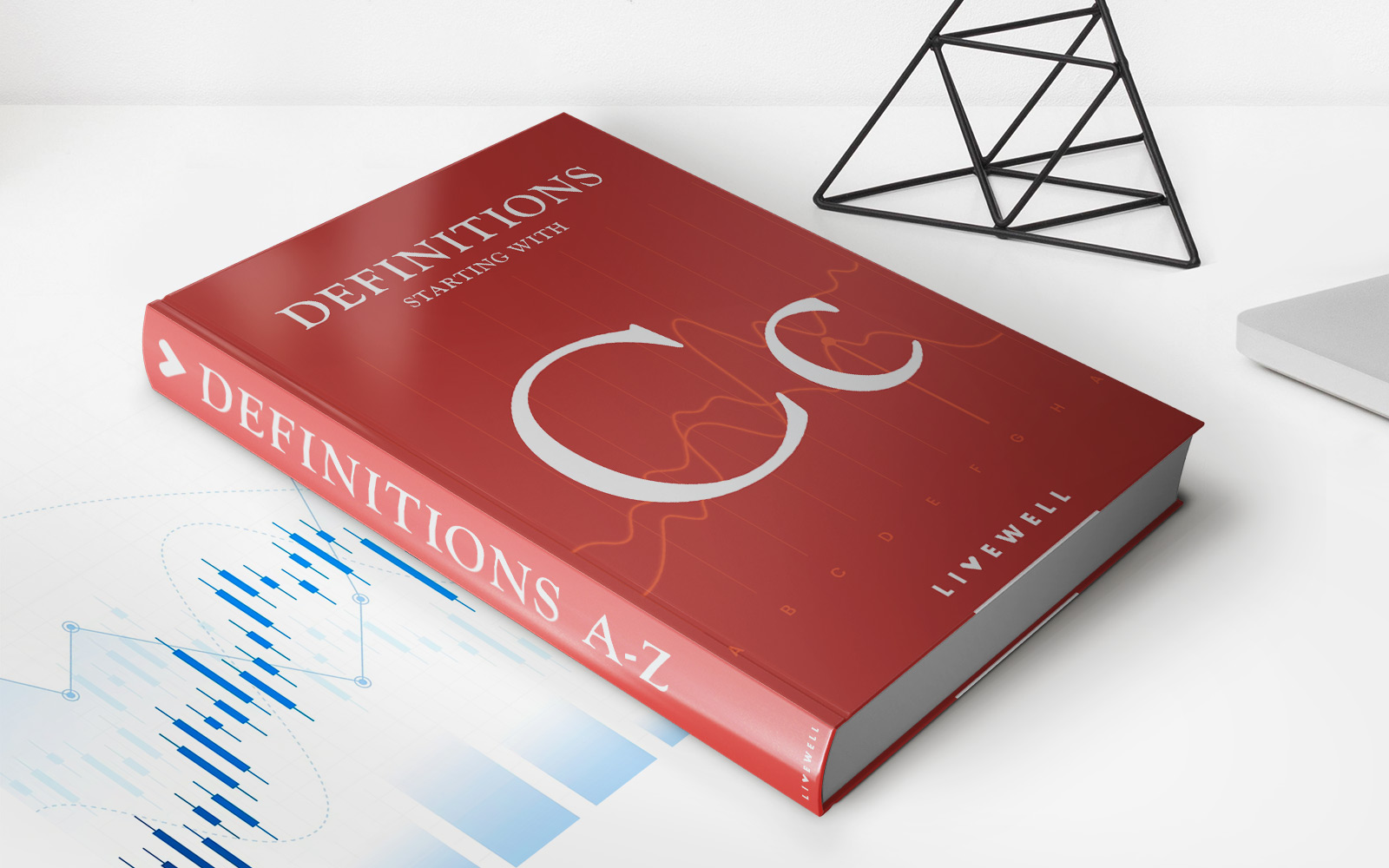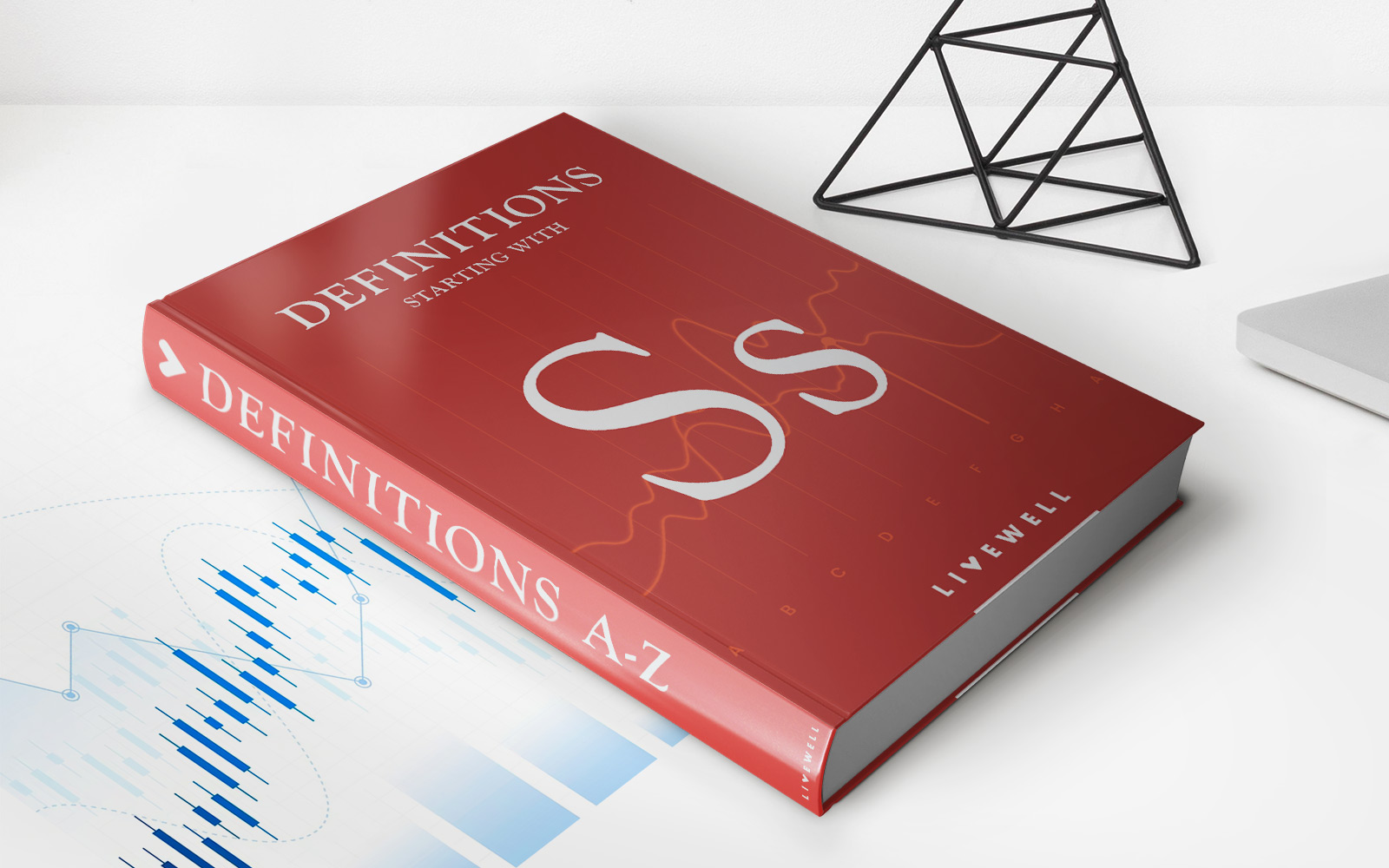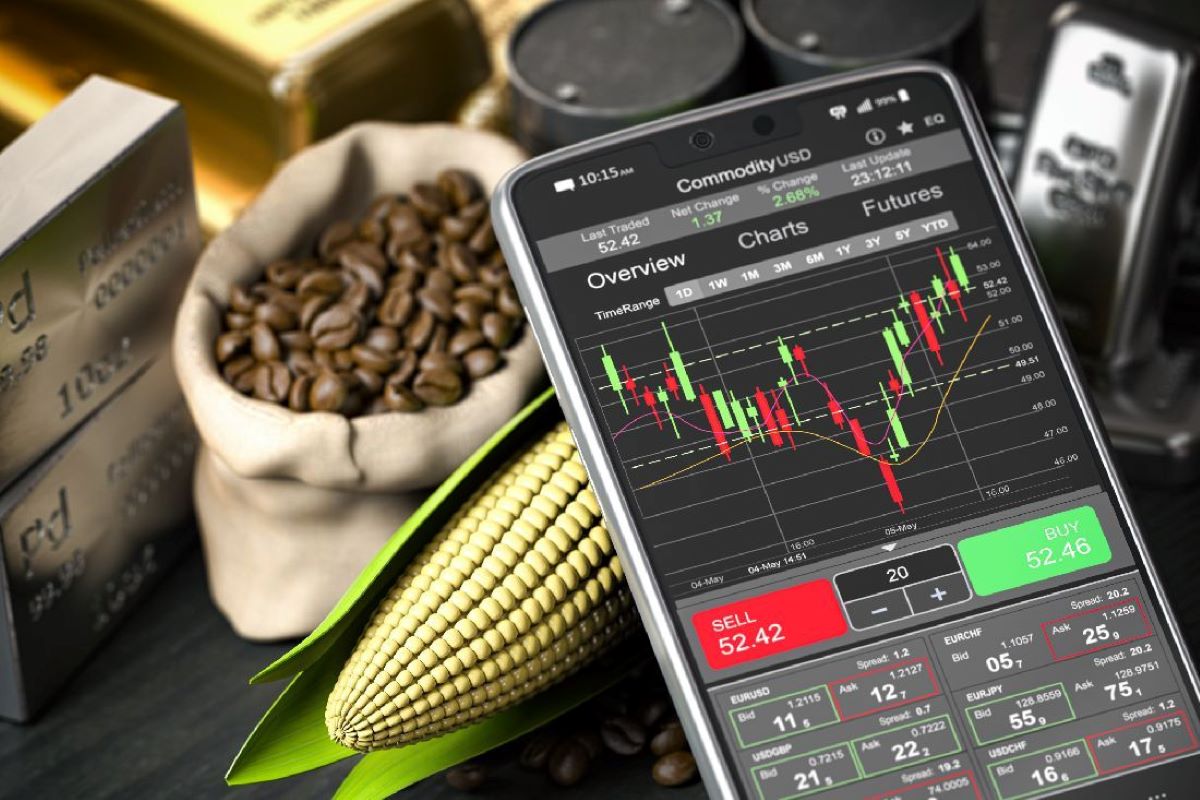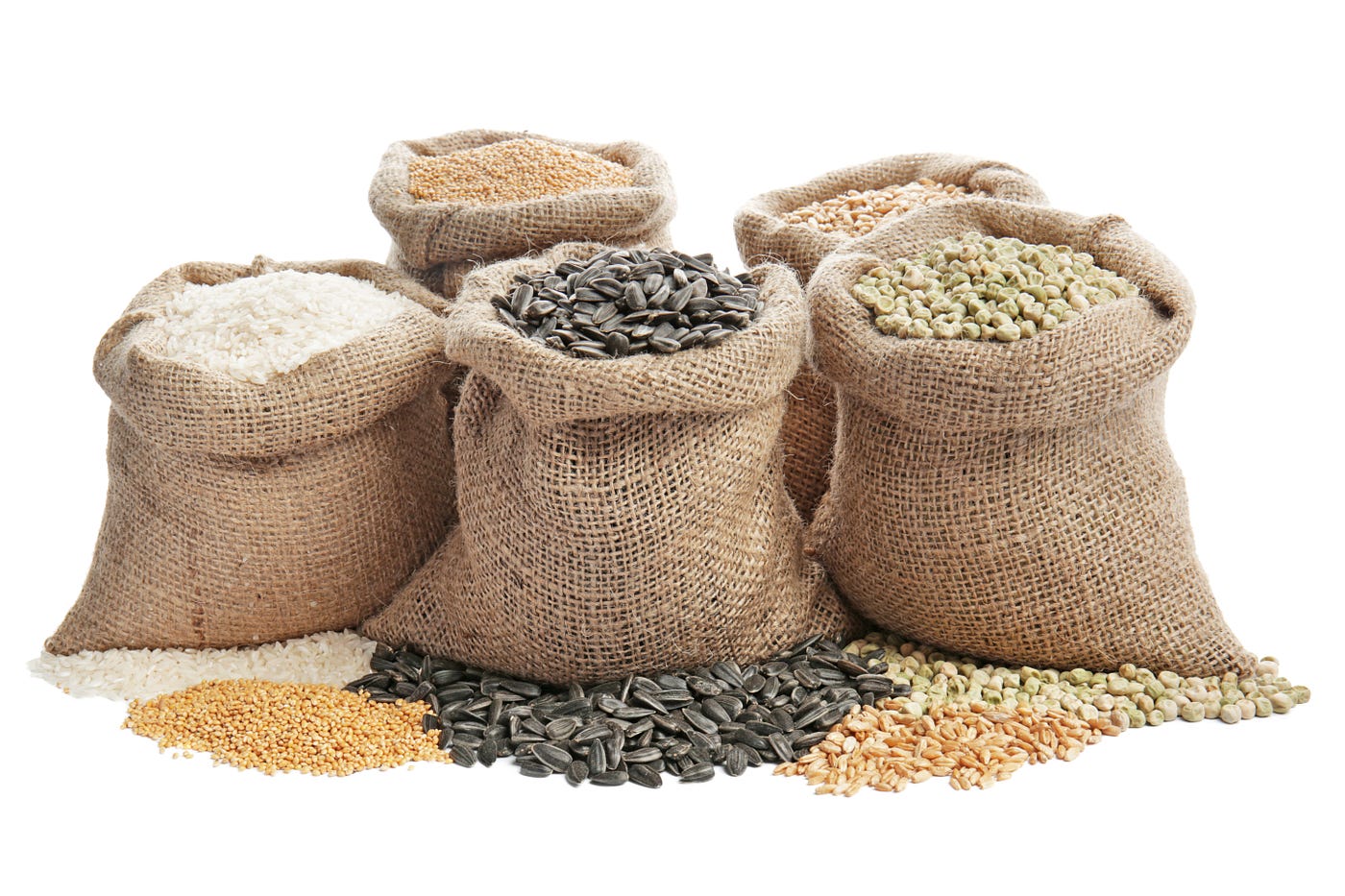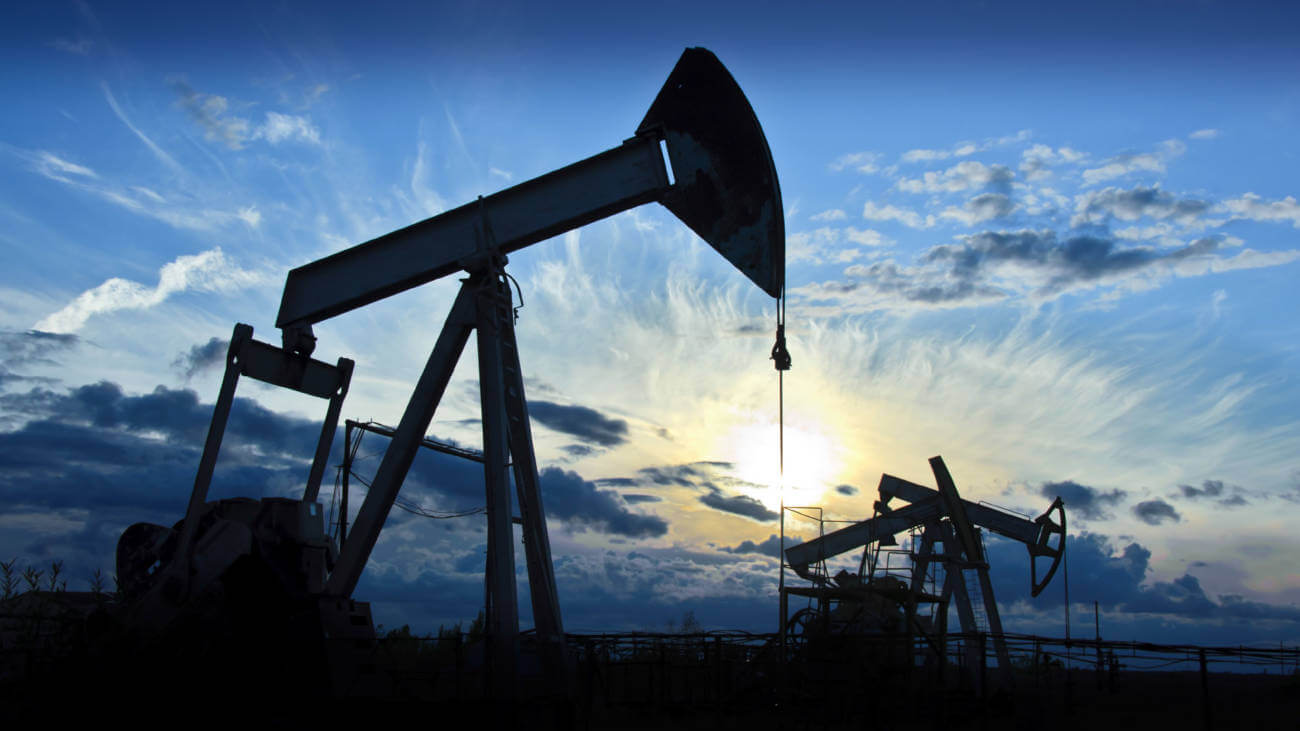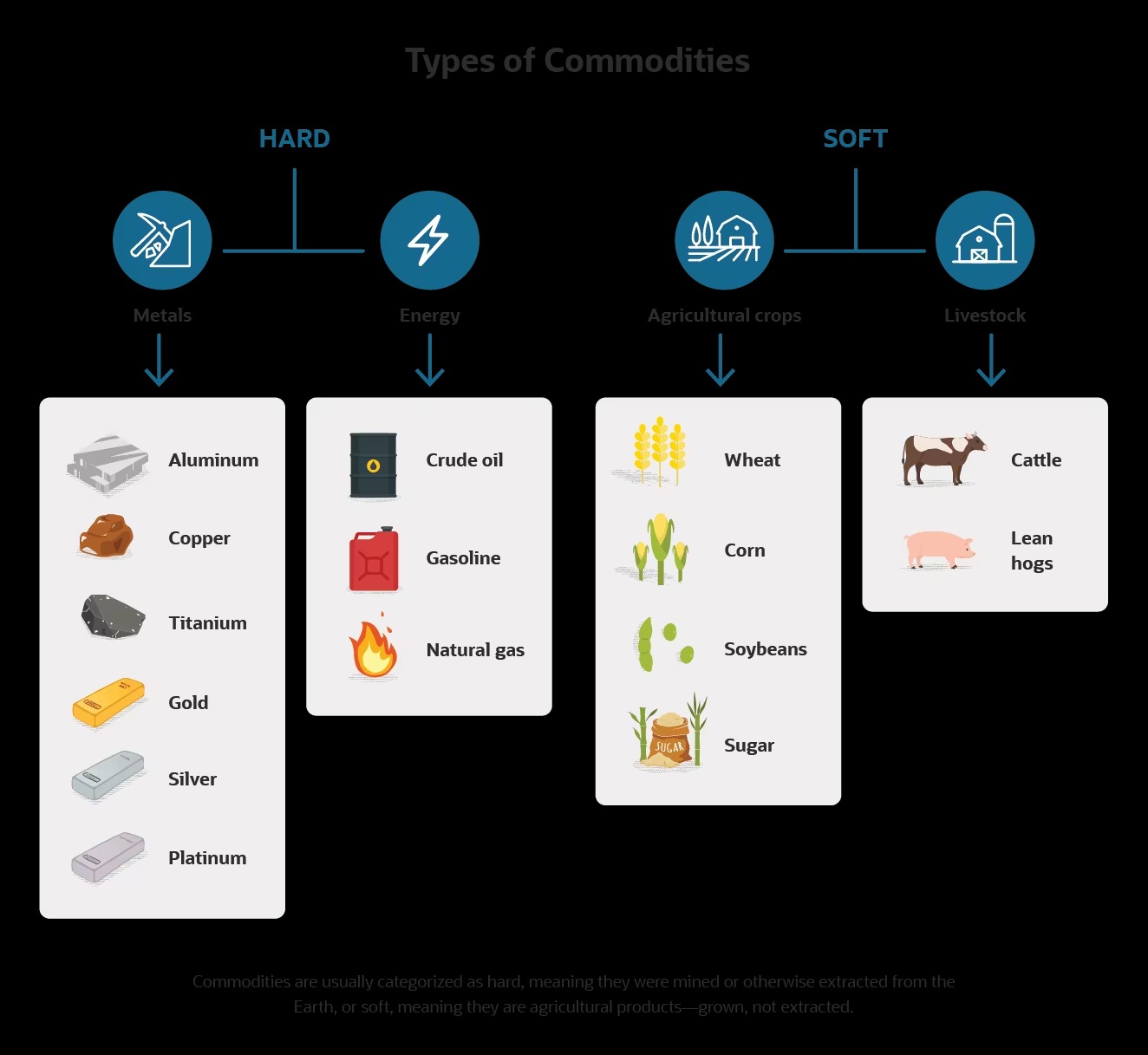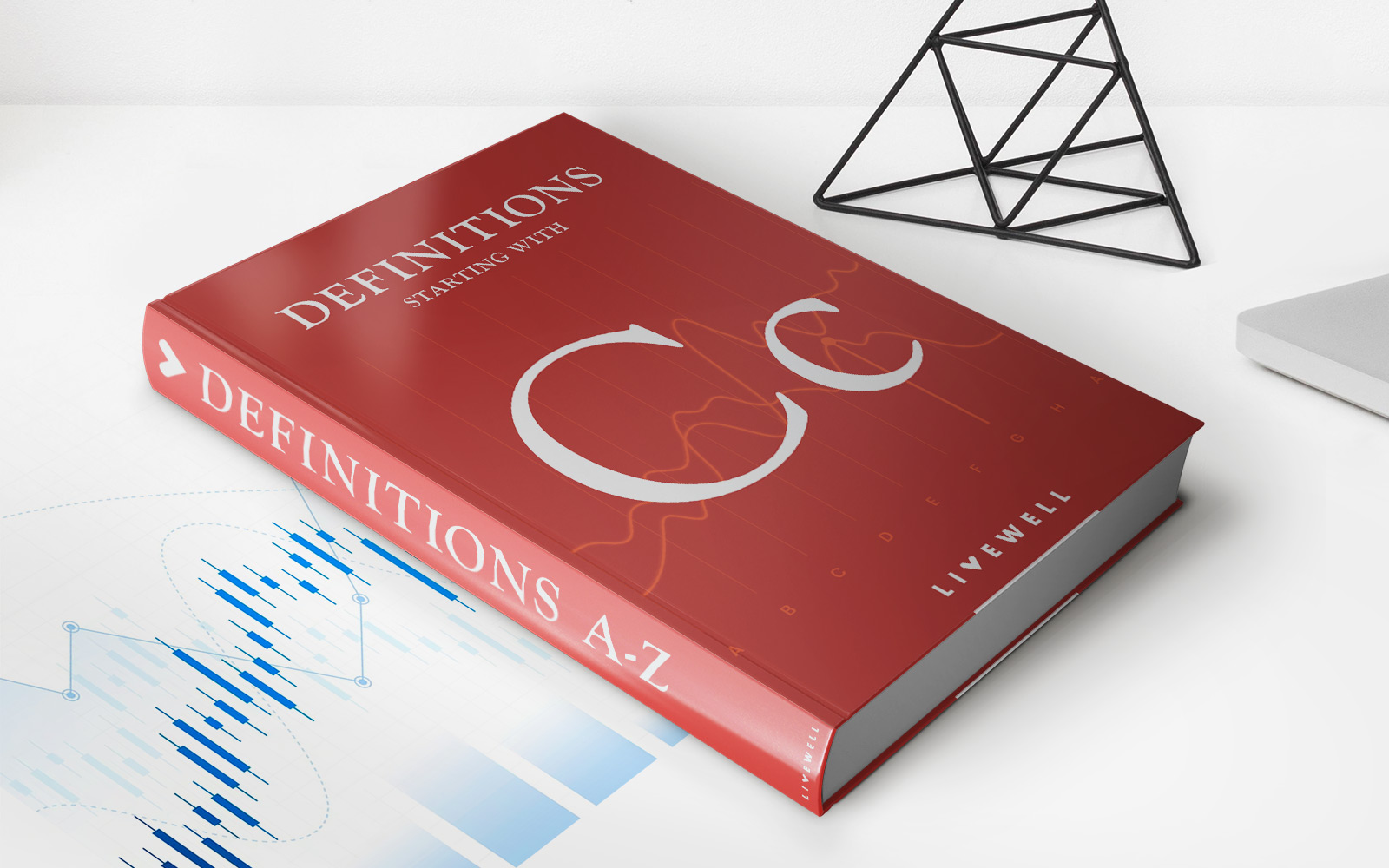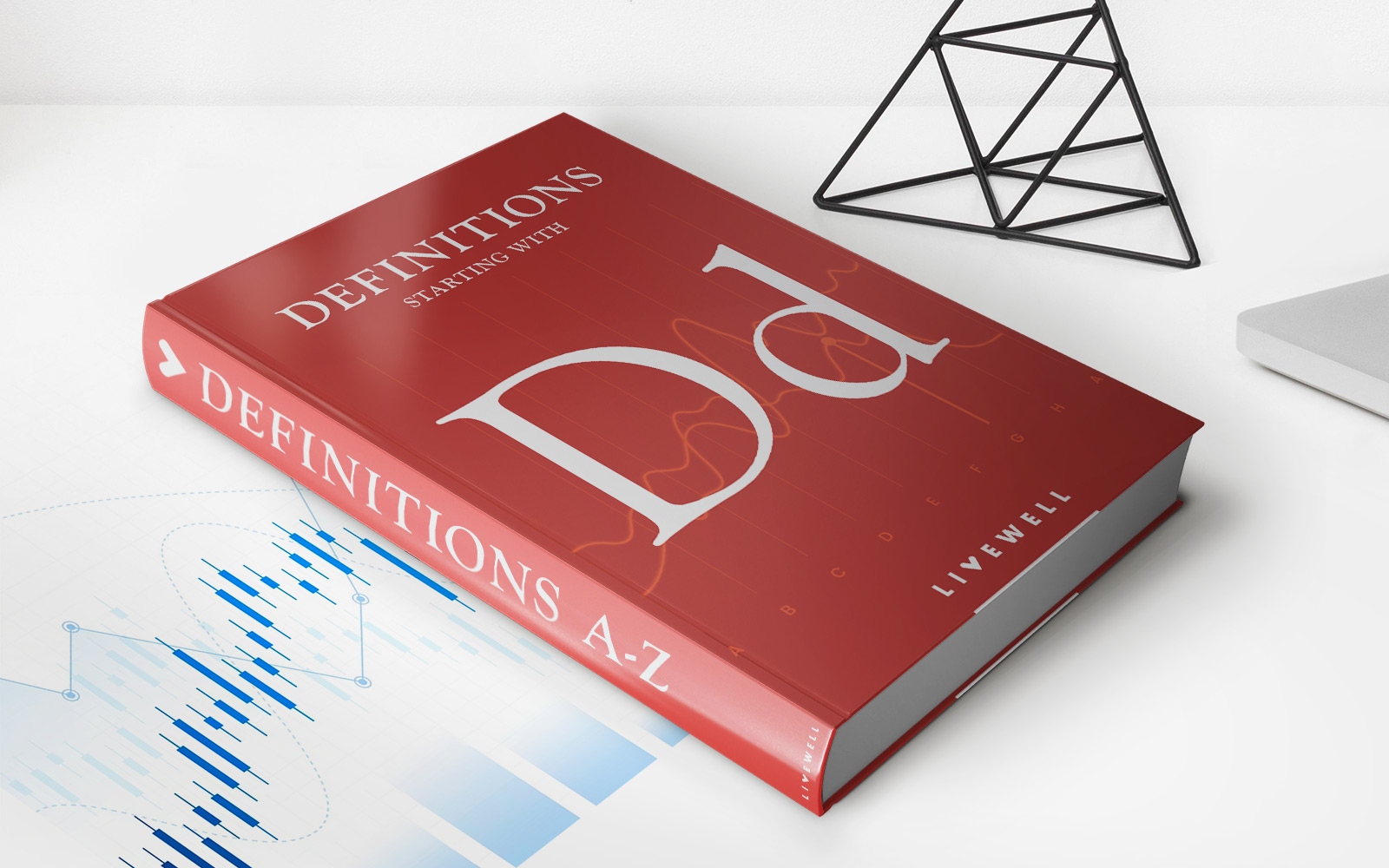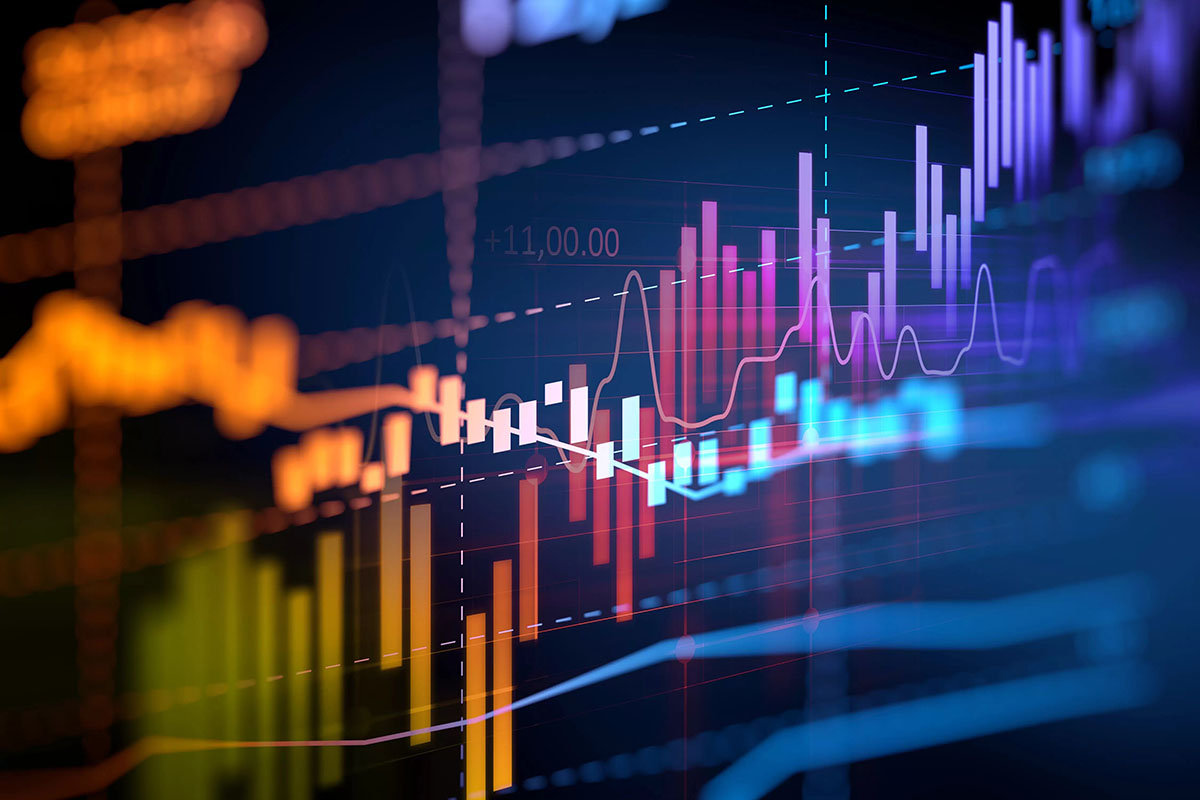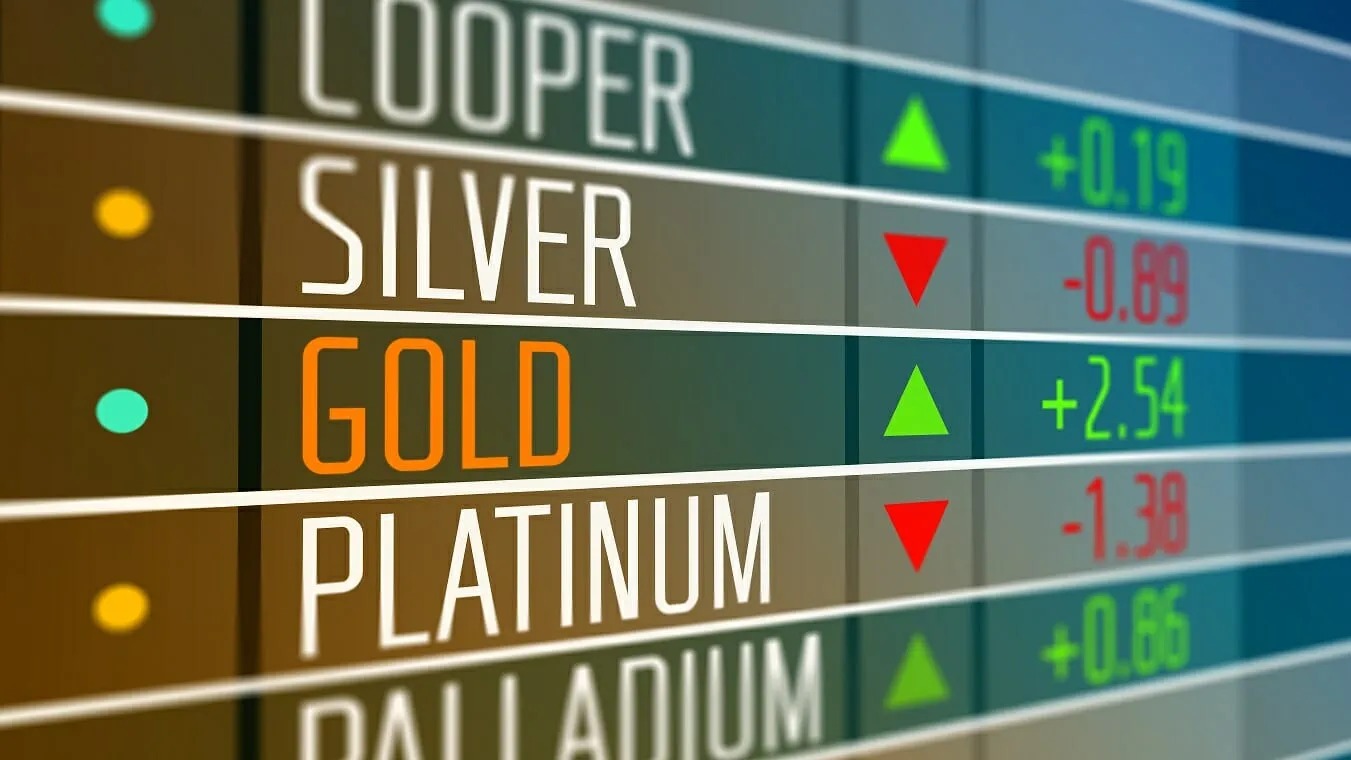

Finance
What Is A Commodities Trader
Published: October 27, 2023
Discover the role of a commodities trader in the world of finance. Explore the strategies and skills needed to thrive in this dynamic industry.
(Many of the links in this article redirect to a specific reviewed product. Your purchase of these products through affiliate links helps to generate commission for LiveWell, at no extra cost. Learn more)
Table of Contents
- Introduction
- Definition of a Commodities Trader
- Role and Responsibilities of a Commodities Trader
- Skills and Qualifications for a Commodities Trader
- Types of Commodities Traded
- Commodity Markets and Exchanges
- Trading Strategies and Techniques
- Risks and Challenges of Commodities Trading
- Pros and Cons of Becoming a Commodities Trader
- Conclusion
Introduction
Commodities trading has been a cornerstone of the financial industry for centuries. It is a fascinating and dynamic field that involves the buying and selling of physical goods, such as agricultural products, energy resources, precious metals, and more. Commodities traders play a pivotal role in this market, using their expertise and analytical skills to make strategic decisions and capitalize on price fluctuations.
As the world becomes increasingly interconnected and reliant on global trade, the demand for commodities continues to grow. This creates a wealth of opportunities for individuals who are interested in pursuing a career as a commodities trader. However, it is important to understand the intricacies of this field and the skills required to succeed.
In this article, we will delve into the world of commodities trading, exploring the role of commodities traders, the skills they need, the types of commodities traded, the markets and exchanges they operate in, as well as the risks and rewards associated with this profession.
Whether you are a finance enthusiast curious about this exciting field or someone considering a career as a commodities trader, this article will provide valuable insights to help you navigate the complexities of the market.
Definition of a Commodities Trader
A commodities trader is an individual or entity that buys and sells commodities in the financial markets. Commodities refer to basic goods used in commerce that are interchangeable with other goods of the same type. Examples of commodities include agricultural products like wheat, corn, and soybeans, energy resources like crude oil and natural gas, metals like gold and silver, and even soft commodities like coffee and sugar.
Commodities traders act as intermediaries between producers and consumers of these goods, aiming to profit from price fluctuations. They analyze market conditions, supply and demand factors, geopolitical events, and other relevant data to make informed trading decisions. Their objective is to buy commodities at a low price and sell them at a higher price to generate profits.
These traders can operate in various settings, including commodity exchanges, futures markets, and other financial institutions. They may work for large investment banks, trading firms, or as independent traders. Some commodities traders also specialize in specific commodities or sectors, leveraging their expertise and knowledge to excel in their chosen area.
To be successful as a commodities trader, one needs to have a deep understanding of the specific commodities being traded, as well as the factors that impact their prices. They must be skilled in technical analysis, interpreting charts and trends to identify potential trading opportunities. Additionally, strong risk management skills are crucial, as commodities trading can be highly volatile and unpredictable.
Overall, a commodities trader is an individual who engages in the buying and selling of commodities to generate profits. Their role in the financial markets is vital, as they help to ensure liquidity and price stability in the commodities sector.
Role and Responsibilities of a Commodities Trader
Commodities traders play a critical role in the financial markets, acting as intermediaries between producers and consumers of commodities. Their main responsibility is to buy and sell commodities on behalf of their clients or their company, with the goal of generating profits from price fluctuations. Let’s delve into the role and responsibilities of a commodities trader:
Market Analysis: A commodities trader needs to constantly monitor and analyze market conditions to identify potential trading opportunities. This includes studying supply and demand factors, geopolitical events, weather patterns, and economic indicators. By staying informed about these factors, traders can make informed decisions about when to buy or sell commodities.
Trading Execution: Once a commodities trader identifies a trade opportunity, their next responsibility is to execute the trade. This involves placing buy or sell orders through various trading platforms or directly on the commodity exchanges. Traders need to consider factors such as timing, liquidity, and order size when executing trades to ensure optimal results.
Risk Management: Commodities trading can be highly volatile, and managing risk is a crucial aspect of a trader’s responsibility. Traders must develop risk management strategies to protect their investments and limit potential losses. This may involve setting stop-loss orders, diversifying their portfolio, or implementing hedging techniques to offset potential losses.
Reporting and Analysis: Commodities traders are also responsible for tracking and analyzing their trading performance. They need to maintain accurate records of their trades, including entry and exit prices, trade volumes, and profit or loss calculations. This data is crucial for evaluating trading strategies, identifying areas for improvement, and making informed decisions in the future.
Client Management: Many commodities traders work with institutional clients or individual investors. In this role, they are responsible for building and maintaining relationships with clients, understanding their investment goals and risk tolerance, and executing trades that align with their clients’ objectives. Traders must effectively communicate market insights, provide updates on trades, and address any concerns or inquiries from their clients.
Continuous Learning: The commodities market is complex and ever-evolving, so a trader’s willingness to continuously learn and adapt is vital. Staying updated with market trends, new trading strategies, and emerging technologies is crucial for achieving long-term success in this field. Traders may participate in seminars, webinars, or industry conferences to enhance their knowledge and skills.
Compliance and Regulations: Commodities traders must adhere to strict regulatory guidelines and compliance requirements. They need to ensure that their trading activities are in line with relevant laws and regulations governing commodities trading. Traders must also maintain proper documentation and transparency in their transactions to avoid any legal issues.
In summary, the role of a commodities trader encompasses various responsibilities, including market analysis, trading execution, risk management, reporting and analysis, client management, continuous learning, and compliance with regulations. By fulfilling these responsibilities, commodities traders contribute to the efficient functioning of the commodities market and seek to generate profits for themselves or their clients.
Skills and Qualifications for a Commodities Trader
Being a successful commodities trader requires a specific set of skills and qualifications. While formal education is important, there are also several key skills that can greatly contribute to a trader’s success in this field. Let’s explore the skills and qualifications necessary to thrive as a commodities trader:
Financial Knowledge: A solid understanding of financial markets and instruments is essential for a commodities trader. This includes knowledge of commodities markets, futures contracts, options, and derivatives. Traders should be familiar with economic indicators, financial statements, and market analysis techniques to make informed trading decisions.
Analytical Skills: Commodities traders need strong analytical skills to interpret market data, identify trends, and evaluate potential risks and opportunities. They should possess the ability to analyze complex information quickly and accurately, enabling them to make well-informed trading decisions in a fast-paced environment.
Risk Management: Effective risk management is crucial in commodities trading. Traders must be able to assess and manage risk through techniques such as diversification, hedging, and stop-loss orders. This includes the ability to calculate risk-reward ratios and implement strategies to mitigate potential losses.
Decision-making Abilities: Successful commodities traders are able to make sound decisions under pressure. They should be able to weigh various factors, consider market conditions, and evaluate potential outcomes quickly. The ability to make timely and calculated decisions can greatly influence trading success.
Technical Skills: Proficiency in using trading platforms, market analysis tools, and financial software is essential for commodities traders. They should be familiar with technical indicators, chart patterns, and trading algorithms. Additionally, keeping up to date with advancements in technology that impact trading practices is important.
Mathematical Skills: Commodities trading involves complex calculations and mathematical modeling. Traders need strong mathematical skills to analyze pricing patterns, calculate profit and loss, and interpret statistical data. Proficiency in probability theory, statistical analysis, and quantitative methods can provide a competitive edge.
Communication Skills: Effective communication skills are critical for commodities traders, especially when interacting with clients, colleagues, and counterparties. Traders must be able to clearly articulate their trading strategies, provide market insights, and negotiate favorable terms. Additionally, active listening skills are important for understanding client needs and managing expectations.
Emotional Intelligence: The ability to manage emotions and maintain composure in high-pressure situations is essential for commodities traders. They must handle both wins and losses with poise and make rational decisions without being influenced by emotions. Emotional intelligence helps traders stay focused, adapt to market conditions, and build strong relationships with clients and colleagues.
Continuous Learning: The commodities market is constantly evolving, so a thirst for knowledge and a commitment to continuous learning are vital for success. Traders should stay updated on market trends, regulatory changes, and industry developments. Actively seeking learning opportunities, such as attending seminars and reading industry publications, can help traders stay ahead of the curve.
Educational Qualifications: While there is no specific educational path to become a commodities trader, a bachelor’s degree in finance, economics, business, or a related field can provide a solid foundation. Advanced degrees or certifications, such as a Master’s in Finance or the Chartered Financial Analyst (CFA) designation, can further enhance a trader’s credentials.
In summary, successful commodities traders possess a combination of financial knowledge, analytical skills, risk management abilities, decision-making capabilities, technical aptitude, mathematical proficiency, communication skills, emotional intelligence, and a commitment to continuous learning. While formal education is important, the development and refinement of these skills will greatly contribute to a trader’s success in the dynamic world of commodities trading.
Types of Commodities Traded
The commodities market is vast and diverse, encompassing a wide range of physical goods that serve as the foundation of global trade and commerce. Let’s explore some of the major types of commodities traded:
Agricultural Commodities: This category includes crops and livestock products. Common agricultural commodities traded in the market include wheat, corn, soybeans, rice, cotton, sugar, coffee, cocoa, and livestock such as cattle and hogs. Agricultural commodities are influenced by factors such as weather conditions, global food demand, and government policies related to agriculture.
Energy Commodities: Energy commodities are essential for powering economies and include crude oil, natural gas, gasoline, heating oil, and coal. These commodities are influenced by geopolitical tensions, supply and demand dynamics, global energy policies, and environmental considerations. Energy commodities are traded in both spot markets and futures markets.
Metal Commodities: Precious metals such as gold, silver, platinum, and palladium have long been used as stores of value and for industrial purposes. Base metals like copper, aluminum, zinc, and nickel are widely used in manufacturing and construction. Metal commodities are influenced by factors such as economic growth, industrial demand, currency fluctuations, and geopolitical events.
Soft Commodities: Soft commodities refer to products that are grown rather than extracted, including crops like coffee, cocoa, tea, sugar, and various types of fruits and vegetables. Soft commodities are impacted by factors such as weather conditions, pest outbreaks, disease risks, changes in consumer preferences, and global trade policies.
Precious Stones: Precious stones such as diamonds and gemstones are also traded commodities. These stones are valued for their rarity, quality, and aesthetic appeal. The diamond market, in particular, operates under its own unique set of rules, with factors like carat weight, cut, color, and clarity influencing their value.
Industrial Commodities: Industrial commodities are materials used in manufacturing and construction, including metals like steel, iron ore, aluminum, and copper. They also include materials like timber, cement, chemicals, and rubber. Industrial commodities are influenced by factors such as global economic growth, infrastructure development, and technological advancements.
Financial Commodities: Financial commodities refer to instruments derived from the value of underlying physical commodities. This category includes commodity futures contracts, options, exchange-traded funds (ETFs), and other financial products. These instruments allow investors to gain exposure to commodity price movements without physically owning the underlying asset.
It’s important to note that each type of commodity has its own unique market dynamics, supply and demand drivers, and factors that impact its price. Traders specializing in specific commodities or sectors may possess specialized knowledge and insights that give them a competitive advantage in their chosen market.
In summary, the commodities market consists of various types of commodities, including agricultural, energy, metal, soft, precious stones, industrial, and financial commodities. Understanding the characteristics and factors affecting each type of commodity is crucial for successful trading in this diverse market.
Commodity Markets and Exchanges
The trading of commodities takes place on various commodity markets and exchanges around the world. These platforms provide a centralized and regulated marketplace for buyers and sellers to participate in trading activities. Let’s explore some of the prominent commodity markets and exchanges:
Chicago Mercantile Exchange (CME): The CME is one of the largest and most widely recognized commodity exchanges globally. It offers a diverse range of commodity futures and options contracts, including agricultural commodities, energy products, metals, and financial commodities. The CME provides a transparent and regulated marketplace, facilitating efficient price discovery and risk management for market participants.
New York Mercantile Exchange (NYMEX): The NYMEX is a major derivatives exchange where energy commodities such as crude oil, natural gas, heating oil, and gasoline are traded. It operates as part of the CME Group and offers both futures and options contracts. The NYMEX plays a crucial role in shaping global energy prices and is highly regarded in the commodities trading community.
London Metal Exchange (LME): The LME is the world’s premier market for trading industrial metals. It provides a platform for trading futures and options contracts for metals such as copper, aluminum, zinc, nickel, lead, and tin. The LME is known for its unique trading system, which incorporates open-outcry trading as well as electronic trading.
Intercontinental Exchange (ICE): The ICE operates multiple exchanges that facilitate trading in various commodity markets. One notable exchange is the ICE Futures U.S., which offers futures contracts for agricultural commodities like coffee, sugar, cocoa, and cotton. The ICE also has exchanges focused on energy commodities, including crude oil, natural gas, and power contracts.
Tokyo Commodity Exchange (TOCOM): TOCOM is the leading commodity exchange in Japan, offering trading opportunities for precious metals, agricultural commodities, energy commodities, rubber, and more. It plays a significant role in the Asian commodity market, attracting participation from domestic and international traders.
Shanghai Futures Exchange (SHFE): The SHFE is the primary commodity futures exchange in China. It provides a platform for trading various commodities, including base metals, precious metals, agricultural products, and energy. With China being a major consumer and producer of commodities, the SHFE plays a crucial role in setting prices and facilitating hedging activities in the region.
These are just a few examples of the many commodity markets and exchanges around the world. Each exchange has its own unique product offerings, trading mechanisms, and regulatory frameworks. It is important for commodities traders to be aware of the specific rules and regulations governing the exchanges they operate on to ensure compliance and optimal trading strategies.
In summary, commodity markets and exchanges provide the infrastructure for trading commodities. They serve as crucial platforms for price discovery, risk management, and liquidity enhancement. Traders can access these exchanges to participate in various commodity markets and capitalize on price fluctuations.
Trading Strategies and Techniques
Commodities trading involves employing various strategies and techniques to capitalize on price movements and generate profits. The choice of strategy depends on several factors, including the trader’s risk appetite, market conditions, and the specific commodity being traded. Here are some common trading strategies and techniques used in commodities trading:
Trend Following: Trend following is a popular strategy that involves identifying and trading in the direction of prevailing market trends. Traders analyze price charts and technical indicators to determine the trend and enter positions accordingly. This strategy aims to profit from sustained price movements by riding the trend until it shows signs of reversal.
Mean Reversion: Mean reversion is a strategy based on the belief that prices tend to revert to their average or mean over time. Traders using this strategy look for commodities that have deviated significantly from their historical averages and take positions expecting prices to return to normal levels. Mean reversion traders may use statistical measures such as standard deviations or Bollinger Bands to identify potential trading opportunities.
Breakout Trading: Breakout trading involves entering positions when the price of a commodity breaks out of a defined price range or a technical chart pattern. Traders look for key levels of support or resistance and initiate trades when the price breaks above resistance or below support. Breakout traders aim to catch substantial price moves that often occur after breakout events.
Spread Trading: Spread trading involves simultaneously entering long and short positions in related or correlated commodities. Traders take advantage of price discrepancies between different commodities or contracts to generate profits. Spread traders may analyze factors such as supply and demand imbalances and seasonal patterns to identify potential spread trading opportunities.
Scalping: Scalping is a short-term trading strategy where traders aim to capture small, quick profits from frequent trades. Scalpers closely monitor price movements and take advantage of short-term price fluctuations. They may employ techniques such as high-frequency trading, utilizing algorithmic trading systems, and making multiple trades in a single trading session.
Hedging: Hedging is a risk management strategy that involves taking positions to offset potential losses from adverse price movements. Commodities traders, especially those involved in physical commodity trading, often use hedging to protect against price volatility. Hedging techniques include using futures contracts, options contracts, or over-the-counter derivatives to offset price risks.
News Trading: News trading involves reacting to market-moving news and events that can impact commodity prices. Traders closely monitor economic reports, geopolitical developments, weather forecasts, and other news sources to anticipate the impact on commodity markets. News traders aim to capitalize on rapid price movements triggered by these events.
Quantitative Trading: Quantitative trading involves using mathematical models and statistical analysis to make trading decisions. Traders develop algorithms that analyze large datasets to generate trading signals. These algorithms may incorporate factors such as price patterns, volume, and other technical indicators to identify potential trading opportunities.
It’s important to note that no single strategy guarantees success in commodities trading. Traders often combine multiple strategies, adapting their approach based on market conditions and their own risk tolerance. Additionally, traders may incorporate fundamental analysis, technical analysis, or a combination of both when making trading decisions.
In summary, commodities traders employ a variety of strategies and techniques to navigate the complexities of the market. The choice of strategy depends on the trader’s objectives, risk tolerance, and market conditions. By understanding and utilizing different trading strategies, traders can increase their chances of success in commodities trading.
Risks and Challenges of Commodities Trading
Commodities trading offers opportunities for significant profits, but it also comes with inherent risks and challenges. Being aware of these risks is crucial for commodities traders to navigate the market successfully. Let’s examine some of the key risks and challenges in commodities trading:
Price Volatility: Commodities markets are known for their inherent volatility. Prices can fluctuate rapidly due to various factors, including supply and demand imbalances, geopolitical events, weather conditions, and economic indicators. Price volatility presents both opportunities and risks for traders, as rapid price movements can result in significant gains or losses.
Leverage and Margin Requirements: Commodities trading often involves the use of leverage, allowing traders to control large positions with a fraction of the total value. While leverage can amplify profits, it also magnifies potential losses. Additionally, traders must meet margin requirements and maintain sufficient account balances to support their positions, or face margin calls and potential liquidation of their positions.
Market Liquidity: The liquidity of commodities markets can vary depending on the specific commodity and market conditions. Limited liquidity can make it challenging to enter or exit positions at desired prices, especially for less actively traded commodities. Illiquid markets can also result in wider bid-ask spreads, reducing trading efficiency and increasing transaction costs.
Global Factors and Geopolitical Risks: Commodities trading is influenced by global factors such as economic policies, international trade disputes, political instability, and natural disasters. Geopolitical events can disrupt supply chains, impact demand, and trigger price volatility. Traders must closely monitor global events and their potential effects on the commodities they trade.
Operational Risks: Commodities traders face operational risks related to the execution and settlement of trades. These risks include technological failures, connectivity issues, and errors in trade execution or communication. It is essential for traders to have robust risk management systems and protocols in place to mitigate these operational risks.
Regulatory and Compliance Risks: Commodities trading is subject to various regulatory frameworks and compliance requirements. Traders must comply with regulations related to margin requirements, position limits, reporting obligations, and market manipulation. Failure to adhere to these regulations can result in legal and financial repercussions.
Information and Data Risks: Timely and accurate information is critical to making informed trading decisions. However, the availability and reliability of market data can be a challenge, particularly for less transparent or emerging markets. Traders must ensure they have access to reliable data sources and employ robust data analytics tools to gain a competitive edge.
Psychological Challenges: Commodities trading can be emotionally and psychologically demanding. Traders may face stress, anxiety, and pressure as they make high-stakes decisions in a fast-paced environment. Emotion-driven trading can lead to impulsive decisions and irrational behavior, which can significantly impact trading results. Effective risk management and disciplined trading strategies are key to overcoming psychological challenges.
Commodity-Specific Risks: Each commodity has its own unique risks and challenges. For example, agricultural commodities are subject to weather conditions, disease outbreaks, and crop failures. Energy commodities are influenced by geopolitical tensions and regulatory changes. Traders need to be aware of the specific risks associated with the commodities they trade and factor them into their trading strategies.
In summary, commodities trading involves various risks and challenges, including price volatility, leverage, liquidity, global factors, operational risks, regulatory compliance, information risks, psychological challenges, and commodity-specific risks. Successful traders are those who effectively manage these risks and implement sound risk management strategies to protect their capital and maximize their trading opportunities.
Pros and Cons of Becoming a Commodities Trader
Deciding to become a commodities trader is a significant career choice that comes with both advantages and disadvantages. Understanding the pros and cons can help individuals make an informed decision. Let’s explore the key pros and cons of becoming a commodities trader:
Pros:
- Potential for High Profits: Commodities trading offers the potential for substantial profits due to the inherent volatility of commodity markets. Successful trades can result in significant financial gains for traders who employ effective strategies.
- Diversification: Commodities provide a means to diversify investment portfolios. By including commodity trading in an investment strategy, traders can spread risk across different asset classes and potentially enhance overall portfolio performance.
- Global Market Exposure: Commodities are tied to global markets, providing traders with exposure to international trade and economic conditions. This global perspective can offer valuable insights and opportunities beyond local markets.
- Opportunities in Different Sectors: Commodities trading encompasses a wide range of sectors, including agriculture, energy, metals, and more. This allows traders to specialize in a specific sector based on their interests and expertise.
- Fast-Paced and Dynamic Environment: Commodities trading is known for its fast-paced and dynamic nature. Traders thrive in this stimulating environment and enjoy the thrill of making quick decisions based on rapidly changing market conditions.
- Flexibility and Independence: Many commodities traders enjoy the flexibility and independence afforded by their profession. They can work remotely, set their own trading schedules, and have control over their trading strategies.
Cons:
- High Risk and Volatility: Commodities trading involves inherent risks due to price volatility. Traders can experience substantial financial losses if their trades go against their expectations. Effective risk management is crucial to mitigating these risks.
- Capital Requirements: Commodities trading often requires a significant amount of capital to participate effectively. Traders need sufficient funds to meet margin requirements, cover potential losses, and support their trading positions.
- Emotional and Psychological Challenges: The high-pressure nature of commodities trading can lead to emotional and psychological challenges. Traders must handle stress, anxiety, and pressure effectively to make rational and disciplined trading decisions.
- Competitive Environment: Commodities trading is a highly competitive field, with traders vying for opportunities and market advantages. Traders need to stay informed, continuously learn, and adapt to evolving market conditions to remain competitive.
- Market Dependency: Commodities trading is influenced by various external factors, such as weather conditions, geopolitical events, and global economic trends. Traders must stay updated on these factors and adapt their strategies accordingly.
- Regulatory and Compliance Obligations: Commodities trading is subject to regulatory frameworks and compliance obligations. Traders need to adhere to rules related to margin requirements, reporting, and investor protection to avoid legal and financial consequences.
In summary, becoming a commodities trader offers the potential for high profits, diversification, exposure to global markets, and a dynamic work environment. However, it also entails risks, capital requirements, emotional challenges, competition, market dependency, and regulatory compliance obligations. Ultimately, individuals considering a career as a commodities trader should weigh the pros and cons and assess their own risk tolerance, skills, and passion for this challenging and rewarding profession.
Conclusion
The world of commodities trading is a complex, fast-paced, and potentially lucrative field. As this article has outlined, commodities traders play a vital role in the financial markets by buying and selling physical goods, capitalizing on price fluctuations, and facilitating global trade. However, it is important to acknowledge the risks and challenges associated with this profession.
Commodities trading offers numerous advantages, including the potential for high profits, portfolio diversification, exposure to global markets, and the ability to specialize in different sectors. Traders also enjoy the fast-paced and dynamic nature of the industry, as well as flexibility and independence in their work. The opportunity to make a meaningful impact in the global market is alluring to many aspiring commodities traders.
However, it is crucial to acknowledge the cons as well. Commodities trading involves inherent risks and volatility, requiring effective risk management strategies. Traders must also confront emotional and psychological challenges while navigating a competitive environment. Capital requirements and regulatory compliance obligations add additional complexity to the profession.
In conclusion, pursuing a career as a commodities trader can be both rewarding and demanding. It requires a combination of financial knowledge, analytical skills, risk management abilities, and emotional resilience. Traders must stay informed, continuously learn, and adapt to evolving market conditions to succeed in this ever-changing industry.
If you are considering a career in commodities trading, take the time to thoroughly assess the pros and cons, and ensure that you have the necessary skills, qualifications, and mindset to thrive in this field. Remember that success in commodities trading is built on a solid foundation of knowledge, disciplined trading strategies, effective risk management, and the ability to adapt to the dynamic nature of the market.
Whether you decide to embark on this exciting journey or explore other opportunities, understanding the world of commodities trading will undoubtedly broaden your perspective on the global economy and financial markets. Stay informed, keep learning, and make well-informed decisions to navigate the complexities of commodities trading with confidence.
